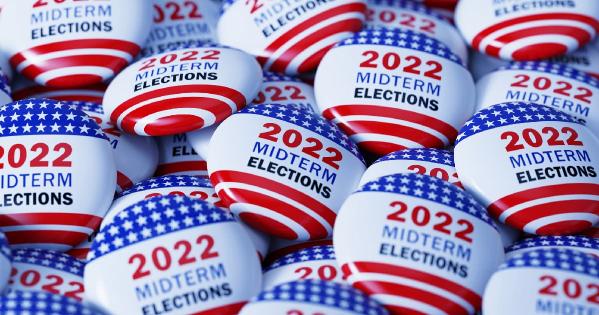AU Experts Talk Midterms, Election Fallout

Republicans entered the 2022 midterm elections with high hopes of leading a wave of candidates into control of Congress.
The US faces an inflation rate of nearly eight percent and, with few exceptions, the party in power in the White House historically loses significant seats in Congress.
But 2022 bucked the trend, with Democrats remaining in control of the Senate with 50 seats and Vice President Kamala Harris holding a tiebreaker vote—the number could move to 51 with a runoff election in Georgia set for December. The Republicans remain likely to reclaim the House of Representatives as of November 14, but their margin will be much smaller than many polls showed.
A group of American University administrators and professors explained how the election played out and why Republicans didn’t gain as many seats as they’d hoped at a briefing with members of the media. Here is a sample of their thoughts.
Garret Martin, SIS Professor
The election is a little bit of a Rorschach test. You can really find very different lessons from it. Donald Trump was partly rebuked because some of the candidates he endorsed. I think Pennsylvania is a particularly good example of candidate quality being an issue. If we end up with what is a plausible scenario, where the Republicans take over the House with a tiny majority, and the Dems hold the Senate, who is going to claim a mandate? What do both parties draw of the results?
(Looking forward to 2024), I think (Florida Governor) Ron DeSantis has an ideal pad to be able to launch his own run for the presidency. It remains to be seen whether his appeal extends beyond Florida, but it was a rather large win even in counties that are normally so democratic.
Sam Fulwood, SOC Dean
I have lost all confidence in polling. We saw an unusually high turnout of young people. Most polls are done with phone calls. Young people do not answer their telephones, so those people would be missed in any kind of polling in the modern era. We as political observers have to find a better way of thinking about our elections without relying so heavily on these outdated polling methods.
There’s no question of the weight of the Supreme Court decision (on Roe v. Wade). It motivated a lot of voters. We see that particularly in some of the state referendums on the issue. I think that motivation carried over and is going to be enduring. That's the reason that I really have an eye on what's going to happen with the Senate, because the judicial appointments will be important in furthering the abortion debate.
Carolyn Gallaher, SIS Senior Associate Dean
I actually think the big thing is that we don't know. One of the reasons we don't know is because polling is not working. If we followed what the polls were saying, there was going to be this “red wave,” and there wasn't. So, the question is, who are we not capturing in the polls? ...I do not think we have figured out how to survey Trump voters. Many of them are people that weren't super involved in elections before (Trump). And I think we don't really have a clear sense of how millennials and Gen Z were going to vote.
Gabriel Mathy, CAS Economics Professor
I think the biggest factor is that the GOP is out of step with what voters want. This was a very favorable economic environment for the GOP. There was a lot of discontent with economic issues like inflation and high gas prices. Yet the GOP has managed to underperform spectacularly.
Amy Dacey, Sine Institute of Policy and Politics Executive Director
If a Republicans gain control of the House, you're also looking at 80 Republicans who question the 2020 election, around 90 House members who are endorsed by Trump. What is the coalition there? What issues are they going to try and take on? What are they going to talk about? They ran on inflation in the economy and crime. What legislation are they going to bring to the table to be accountable to their voters? I think it'll be challenging within their own caucus.
